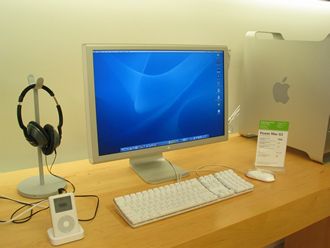 Giant South Korean chaebol Samsung had 22.8 percent of the LCD TV market last year, outstripping the second Korean player, LG Electronics.
Giant South Korean chaebol Samsung had 22.8 percent of the LCD TV market last year, outstripping the second Korean player, LG Electronics.
 Giant South Korean chaebol Samsung had 22.8 percent of the LCD TV market last year, outstripping the second Korean player, LG Electronics.
Giant South Korean chaebol Samsung had 22.8 percent of the LCD TV market last year, outstripping the second Korean player, LG Electronics.
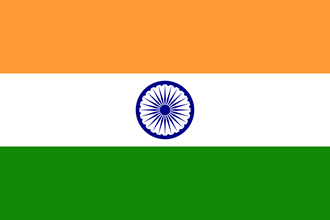 Samsung is being pushed out of its key Indian market by a local budget smartphone maker Micromax.
Samsung is being pushed out of its key Indian market by a local budget smartphone maker Micromax.
Micromax has become the leading supplier in India’s booming smartphone market for the first time in the fourth quarter.
According to beancounters at research firm Canalys, New Delhi based Micromax accounted for 22 percent of smartphone sales in India in the October-December quarter, ahead of Samsung’s 20 percent. In total, 21.6 million smartphones were sold in India in the period, a 90 percent surge from a year earlier.
India, which has the world’s second-highest number of mobile phone accounts after China, is the third-biggest market by number of smartphones sold. Low-priced smartphones are the top sellers in a country where many buyers are upgrading from feature phones.
Micromax’s performance was partly due to its “continuing appeal to mobile phone users upgrading to smartphones,” Canalys said.
It estimated nearly a quarter of smartphones sold in India in the fourth quarter were devices priced under $100, while 41 percent of devices sold were in the $100-$200 range.
Micromax and Samsung were followed by two other Indian budget smartphone brands, Karbonn and Lava, by number of handsets sold in fourth quarter. Japan’s Sony Corp said its net annual loss will likely be smaller than previously forecast after cost cuts and higher-than-expected sales of its image sensors and PlayStation video game consoles helped its third-quarter profit beat estimates.
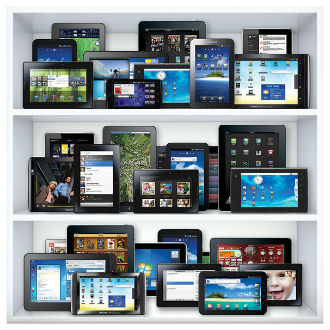 Apple continued to be the market leader for tablets in 2014 but it, in common with other vendors, showed a drop in sales.
Apple continued to be the market leader for tablets in 2014 but it, in common with other vendors, showed a drop in sales.
Some analysts believe that not only has the market reached maturity, but it’s hard to persuade people to upgrade. Others think that tablets are being squeezed on the one hand by larger screen size smartphones and others by low cost notebook PCs.
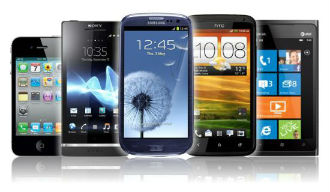 Over 375.2 million smartphones shipped during the fourth quarter of 2014 – that’s up by 28.2 percent compared to the same period the year before.
Over 375.2 million smartphones shipped during the fourth quarter of 2014 – that’s up by 28.2 percent compared to the same period the year before.
 While there were shortages of monitor panels last year that caused only 133.6 million units to ship, some vendors have done better than expected.
While there were shortages of monitor panels last year that caused only 133.6 million units to ship, some vendors have done better than expected.
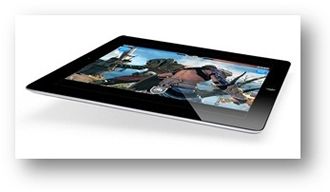 Despite reports suggesting that the market for tablets is in decay, fresh data shows that it ain’t necessarily so.
Despite reports suggesting that the market for tablets is in decay, fresh data shows that it ain’t necessarily so.
 LG is behaving oddly over moves by Qualcomm to fix overheating problems in its Snapdragon 810 chip.
LG is behaving oddly over moves by Qualcomm to fix overheating problems in its Snapdragon 810 chip.
Samsung told Qualcomm it would not use the chip for its Galaxy S6 model because of overheating problems and Qualcomm suggested it would make a few modifications.
However LG, which is also using the chip, appears outraged. Its initial response to Samsung’s statement was that the chip never overheated and there were no problems. Now it is threatening to take legal action against Qualcomm if it modifies its latest Snapdragon 810 chip.
Its argument is that if Qualcomm modifies the Snapdragon 810, it means that the company admits the chipset has a flaw. Then it could trigger legal disputes, a spokesLG said.
So in other words – LG claims there is nothing wrong with the chip, but if Qualcomm admits there is something wrong with the chip then it will sue.
The question here is then why LG did not detect the Snapdragon’s fire breathing qualities.
It has been suggested that Qualcomm will provide a modified chipset to Samsung, something that Qualcomm and Samsung Electronics declined to confirm.
The Snapdragon 810 is designed as a 20-nanometer flagship mobile processor for top-tier smartphones.
The system on chip (SoC) integrates the fourth-generation long-term evolution advanced model (LTE-A), dubbed category 6, and theoretically supports up to 450 megabits-per-second data download speed.
But Samsung was worried that the chipset had a serious “throttling” problem that forcibly limits the graphic processing performance when it overheats, reports said.
Analysts said that a chipmaker could modify a new chip before mass production and Qualcomm may update it if its major client Samsung is uncomfortable with the overheating problem.
Qualcomm has said it will start mass-producing the Snapdragon 810 in the first half of the year.
For Qualcomm, Samsung Electronics is one of the most important partners, so the company is likely to show some reaction to the overheating issue.
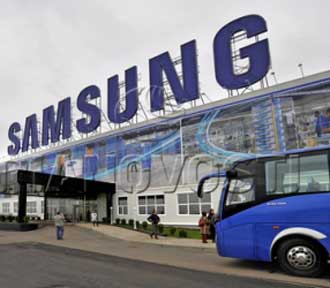 Apple and Samsung appear to have buried any hatchets they might have had during the legal battle over the shape of the smartphone.
Apple and Samsung appear to have buried any hatchets they might have had during the legal battle over the shape of the smartphone.
While the legal battle raised over such crucial matters as whether or not Steve Jobs invented the rounded rectangle, Apple moved away from Samsung as its main producer of chips. In fact analysts believed that in the long term Samsung would lose any Apple production completely.
According to the Maeil Business Newspaper it seems that Apple has changed its mind and Samsung is back to being the main supplier of processors powering Apple iPhones.
It looks like Samsung will be responsible for around 75 percent of the chip production for the next iPhone, the South Korean newspaper said.
The newspaper did not say how much the contract is worth and what other company will be supplying Apple. Samsung will make the chips from its factory in Austin, Texas, according to the report.
What appears to have happened is that not only has the row between Samsung and Apple cooled, Jobs’ Mob discovered that Samsung’s rivals, such as TSMC were not up to snuff or had capacity problems.
 While Samsung has pulled Qualcomm’s Snapdragon 810 from its new Galaxy S smartphone, because of overheating problems, another customer is denying there is anything wrong with it.
While Samsung has pulled Qualcomm’s Snapdragon 810 from its new Galaxy S smartphone, because of overheating problems, another customer is denying there is anything wrong with it.
LG said it has encountered no overheating problems with Qualcomm Snapdragon processor and it will be powering a curved screen G Flex2 smartphone later this month.
Woo Ram-chan, LG vice president for mobile product planning, said that he was aware of the various concerns in the market about the (Snapdragon) 810, but the chip’s performance is quite satisfactory.
The comment came after Bloomberg reported a day earlier that Samsung Electronics, the world’s top smartphone maker, decided not to use the new Qualcomm processor for the next flagship Galaxy S smartphone after the chip overheated during testing. To be fair, Samsung and Qualcomm have declined to comment on the record about the reason for Samsung abandoning the chip. Sources which cite overheating are so far unnamed.
Samsung is widely expected to unveil the new Galaxy S smartphone in early March, and Bloomberg reported that the Korean firm will use its own processors instead.
Woo said on Thursday that internal tests for the G Flex2, powered by the new Qualcomm processor, show that the new product emits less heat than other existing devices. The new phone is scheduled to start selling in South Korea on January 30.
He said he didn’t understand why there is a heat problem with the Galaxy S that his phone does not have.
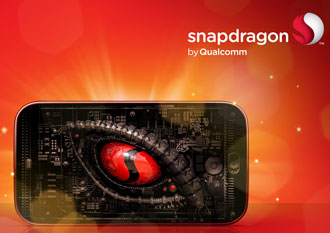 Samsung has ruled out using Qualcomm processors for the next version of the South Korean technology giant’s flagship Galaxy S smartphone.
Samsung has ruled out using Qualcomm processors for the next version of the South Korean technology giant’s flagship Galaxy S smartphone.
Apparently the Qualcomm Snapdragon 810 chip had a nasty habit of overheating when Samsung came to test it. Samsung will use its own processors instead.
This would be a huge blow to Qualcomm which is the world’s largest maker of semiconductors used in phones, and has been supplying Samsung with chips that run the company’s best-selling handsets for ages.
Samsung is Qualcomm’s second-largest customer, providing about 12 percent of its sales, according to Bloomberg supply chain analysis.
It also gives Samsung a reason to boost its own processor-making division as it spends $15 billion on a new factory outside Seoul.
Samsung is expected to release the next Galaxy S as early as March, and it can’t dare to take the risk to use any of the chips in question for its most important model.
The company has been taking a kicking lately as smartphone sales slow. Releasing a phone into the market with a hot chip could sink it.
Qualcomm has not commented on the news shares fell on the news. In Europe they fell to 1.2 percent. Samsung shares rose 1.7 percent as news got out.
Qualcomm said in April its latest 808 and 810 processors will start appearing in phones at the beginning of this year and will feature more advanced computing, graphics and radio capabilities. Xiaomi and LG are among the manufacturers preparing to release models with the Snapdragon 810.
 Chinese vendors managed to sell 453.4 million smartphones in 2014 – and total global shipments of the devices amounted to 1.167 billion units.
Chinese vendors managed to sell 453.4 million smartphones in 2014 – and total global shipments of the devices amounted to 1.167 billion units. Samsung is considering a stock split in a bid to keep its investors happy as the outfit experiences sliding profits.
Samsung is considering a stock split in a bid to keep its investors happy as the outfit experiences sliding profits.
Samsung head of investor relations Robert Yi told reporters the company had been considering a stock split for some time but it was too early to make a decision. A split would make Samsung shares easier to buy and could attract more retail investors.
The world’s top smartphone maker has launched a $2 billion share buy-back program and promised to increase its 2014 year-end dividend by up to 50 percent in a bid to lift its share price and placate investors.
However, Samsung shares are well below last year’s peak of $1,380 mostly because of a string of quarterly profit declines. In fact, the only thing that stopped them sinking lower was the buyback and a planned dividend increase.
Apple saw its shares end up 37.7 percent last year, thanks in part to a seven-for-one split, so it might be another case where Samsung is emulating Jobs’ Mob.